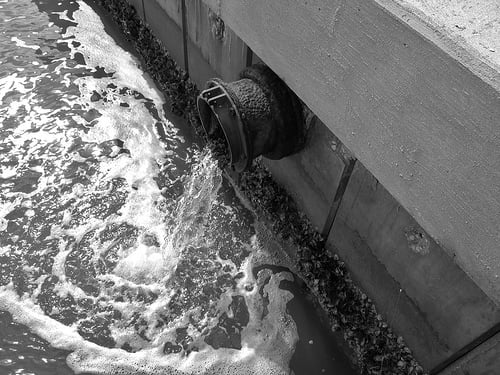

Environment
Online tool devised to highlight water risks
The WWF and German investment and financing development company, DEG, have developed a Water Risk Filter – a simple online tool that allows businesses and investors to understand and tackle risks related to water.
Using information from 235 countries from across the globe, the instrument allows users to scour interactive maps and case studies relevant to their company in order to evaluate the risks posed by water.
Created jointly by the WWF and DEG, the Water Risk Filter requires users to fill in a questionnaire that they are advised to pass onto plant managers further down the supply chain.
By taking into account subsidiaries and suppliers of the lead company, a more accurate water risk assessment can be made.
“Water scarcity is a concern for conservationists, communities and companies alike”, said Jim Leape, WWF International director general.
“But simply competing for every last drop will do no good to anyone.
“If water users become aware of their water risks – and work together to find solutions – we can ensure that people, nature and businesses have the water they need.”
The introduction of the Water Risk Filter comes just over a week after World Water Day, an annual event that advocates global sustainable water management.
Investment in water is essential to the lives of the 783 million people worldwide – that’s 11% of population – who are still without access to clean water.
The WWF and DEG tool may be in high demand given the findings released in a Carbon Disclosure Project (CDP) report from November 2011. The Water Disclosure Global Report found that out of the 190 Global 500 companies that responded to the CDP’s research, 109 (57%) reported board-level oversight of water policies, strategies or plans.
The WWF press release says that the underlying message emerging is, “Why take the risk?” It aims to highlight just how important valuing water can be for a company.
“Water availability is the most underestimated critical issue for the companies we are financing, but we believe that financial institutions can help make the companies more sustainable in their performance”, said Bruno Wenn, Chairman of DEG.
“Our work with WWF looks beyond the risks and shows practical ways how to change them into business opportunities.”
And it’s not just companies that can change their water ways. Individuals can, too.
In January, we looked at the Groundwork’s Green Doctor project – a scheme that advises and equips households with all they need to improve and reduce their use of energy and water, therefore lowering their bills.
As always, we would stress that investing sustainably is another big way in which you can make a difference. Opting for funds that focus on water-related solutions can help solve one of the world’s biggest problems.
Fill in our online form and we’ll connect you to a specialist adviser.
Related articles:


 Environment12 months ago
Environment12 months agoAre Polymer Banknotes: an Eco-Friendly Trend or a Groundswell?

 Features11 months ago
Features11 months agoEco-Friendly Cryptocurrencies: Sustainable Investment Choices

 Features12 months ago
Features12 months agoEco-Friendly Crypto Traders Must Find the Right Exchange

 Energy11 months ago
Energy11 months agoThe Growing Role of Solar Panels in Ireland’s Energy Future





























